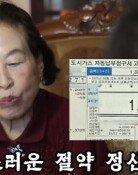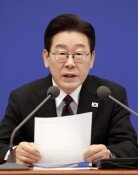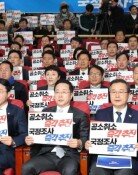[Editorial] Doubts on the Governments Cover-up of Espionage Charge on a North Korean Defector
[Editorial] Doubts on the Governments Cover-up of Espionage Charge on a North Korean Defector
Posted December. 02, 2004 23:12,
There were concerns of possible spies among the increasing number of North Korean defectors coming into Korea. Recently, the concerns have turned into reality. A North Korean defector identified by his family name, Lee, entered Korea again after being arrested by North authorities in April when he went there to meet his family. He reportedly told the authorities about the North Korean refugee situation in Korea and even received espionage training. Korean authorities say that he did not actively serve as a North Korean spy, given that he turned himself in. But this issue is not something to be taken lightly.
First of all, the lax management of North Korean defectors is of great concern. Chung Dong-young, minister of Unification, yesterday said that there are more cases of North Korean spies entering this country disguised as refugees. Still, there is no talk of the governments effort to develop the existing system into a more organized one. Unless the governments attitude on this issue changes, the possibility of another spy posing as a defector cannot be ruled out.
The government is also suspicious in that it publicized details of the case after the media reports. The authorities argue that there was no cover-up regarding this case, but it is hard to understand why they are still investigating almost six months after Lee turned himself in. Against the backdrop, one might question if the government intended to cover up the spy issue. Considering that there has been no report on North Korean spies arrests since the Kim Dae-jung administration, it might be that the governments effort to placate the North is crossing the line.
The North is also to be blamed as it acts differently from its remarks. It dispatches spies to the South, while continually emphasizing cooperation between the two Koreas. However, the bigger blame should go to the South Korean government, which is apparently turning a blind eye to the issue, obsessed with continuing dialogue with the North. The ruling party should be blamed too, as it is arguing for the abolition of the National Security Law under the circumstances in which North Korean defectors can shuttle between the two Koreas if they intend to.
The government should get to the bottom of the truth on this issue and come up with effective measures to manage North Korean refugees more efficiently. Furthermore, it should protest to Pyongyang seriously regarding this matter and get its promise that the North would never have this occur again.







